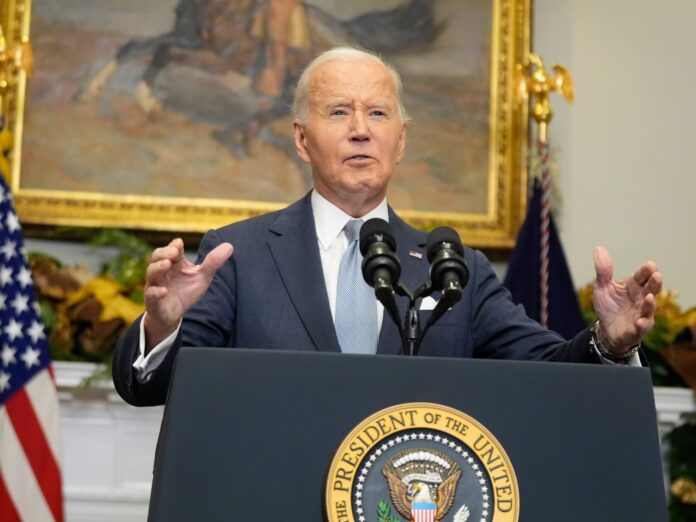Washington, DC – The rapid offensive in Syria has resulted in the opposition taking control of major cities and vast territories, leading to the downfall of President Bashar al-Assad’s government and drastically changing the country’s future.
These events mark a significant shift in Syria’s fortunes and inject new life into a long-standing civil war that seemed stagnant for years. Analysts have indicated that the Biden administration was caught off guard by these developments, raising concerns about the future course of action for Washington.
Qutaiba Idlbi, a senior fellow at the Atlantic Council in Washington, DC, expressed surprise at the unfolding events and emphasized the need for the Biden administration to reassess its approach towards Syria amidst the rapidly changing landscape.
He also highlighted the constraints faced by Biden in implementing any significant policy changes given the limited time left in his presidency.
‘Historic opportunity’ or ‘risk and uncertainty’?
Following the takeover of Damascus by opposition groups, President Biden acknowledged the situation as both a historic opportunity and a period of risk and uncertainty. He attributed al-Assad’s downfall to various factors, including US support for Israel, Ukraine, and groups in Syria and Iraq that posed a challenge to Iran.
Biden outlined plans to support Syria’s neighbors and maintain US presence in northeast Syria to assist the Kurdish-led Syrian Defense Forces in their fight against ISIL (ISIS).
The administration vowed to engage with Syrian groups while also remaining vigilant given the complex dynamics at play on the ground.
‘Six weeks left on the clock’
With limited time left in office, Biden is expected to focus on preventing potential complications rather than making significant policy decisions. Analysts suggest that major decisions regarding Syria may be left to the incoming Trump administration.
The evolving situation on the ground, including the SDF’s territorial gains and the presence of US forces, presents challenges in determining future strategies towards Syria.
There is also anticipation for a potential reassessment of HTS’ terrorist designation and concerns regarding the group’s treatment of Syria’s diverse population.
‘Backburner’
Despite celebrating al-Assad’s ousting, concerns remain about the Biden administration’s initial approach to Syria and the lack of a coherent strategy over the years. The shifting dynamics in Syria have prompted a reevaluation of advocacy efforts towards the new administration.
Obama’s involvement in supporting rebel groups and the subsequent cautious approach towards direct military intervention highlight the complexities of US policy in Syria. Trump’s stance on isolationism and dealings with Iran further complicate the situation.




